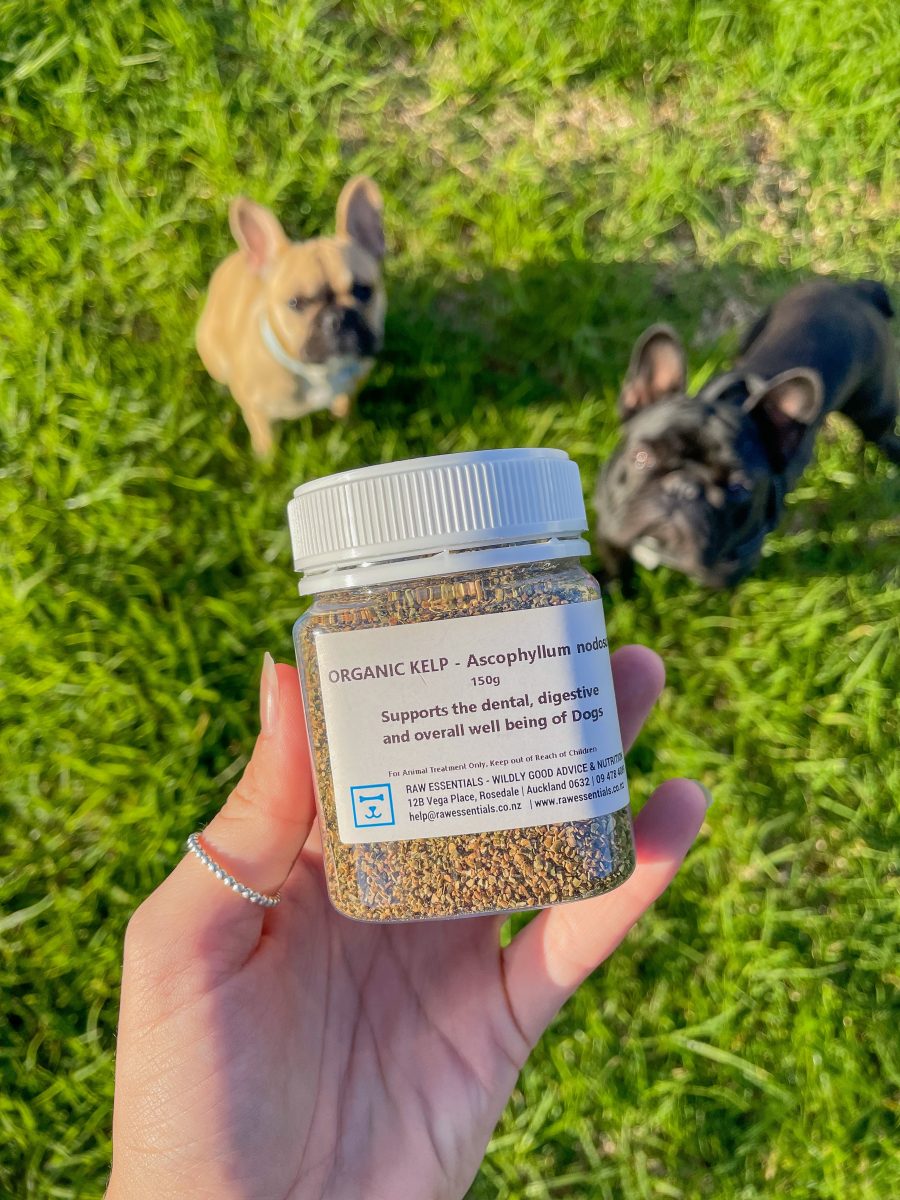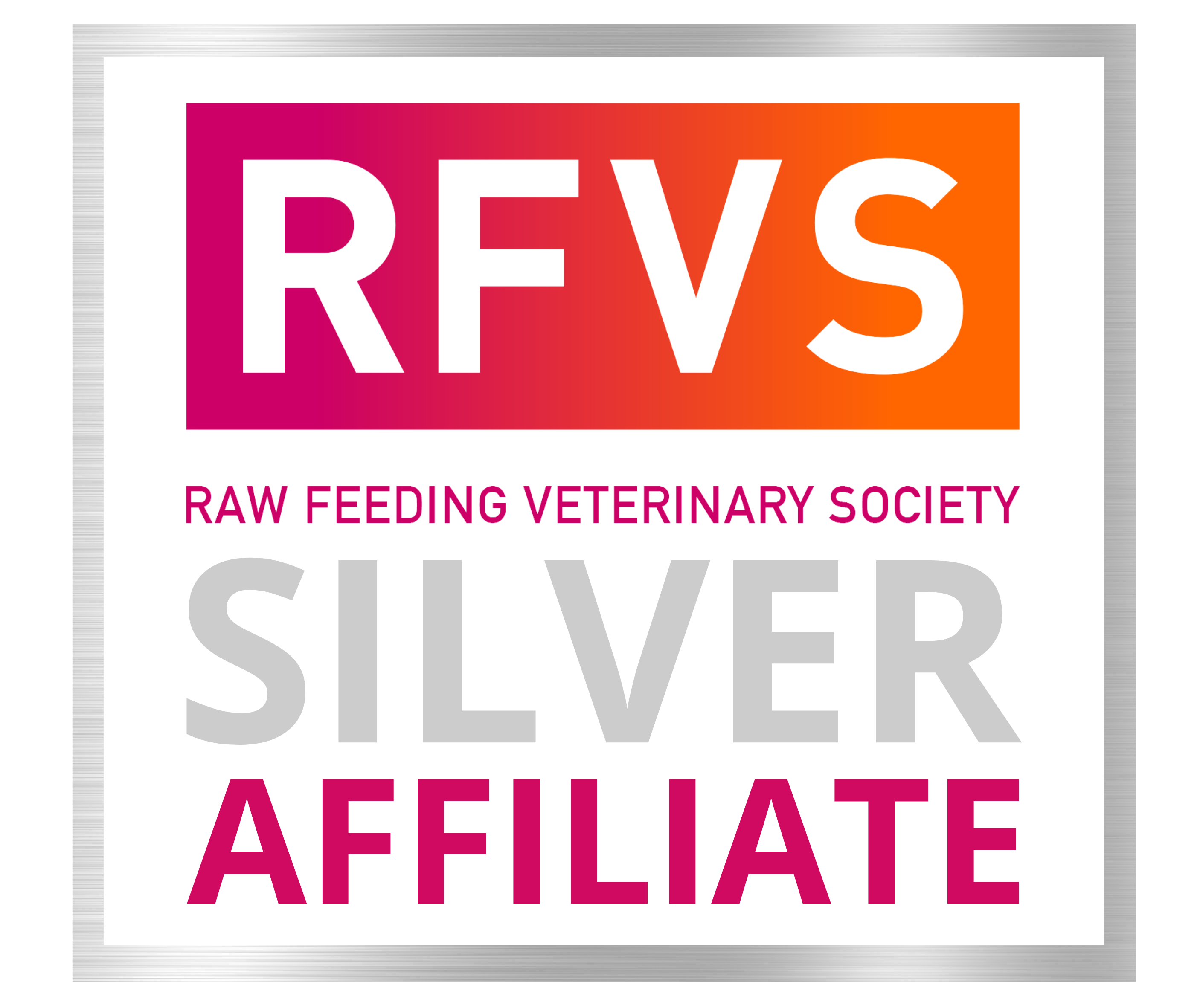Dental Health
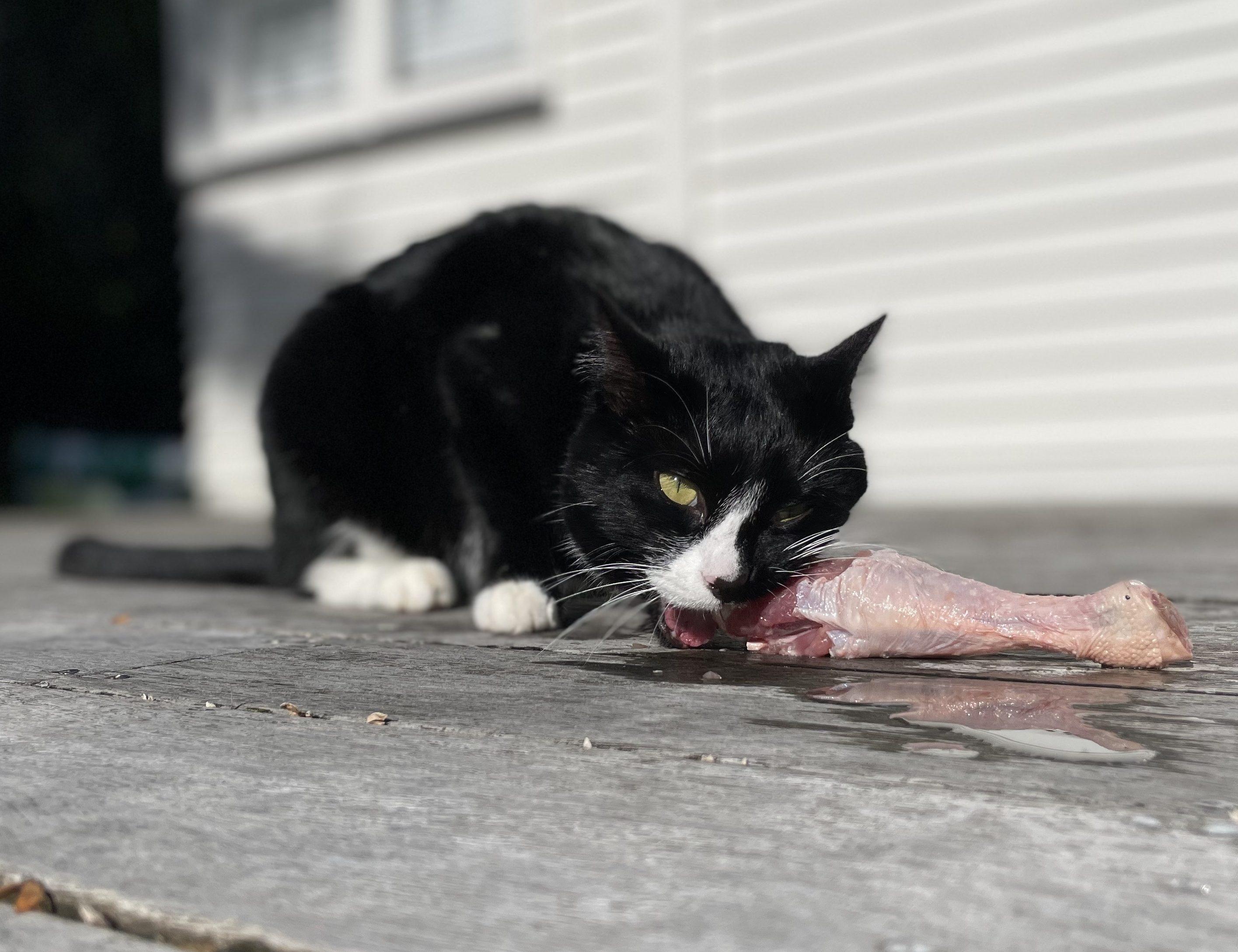
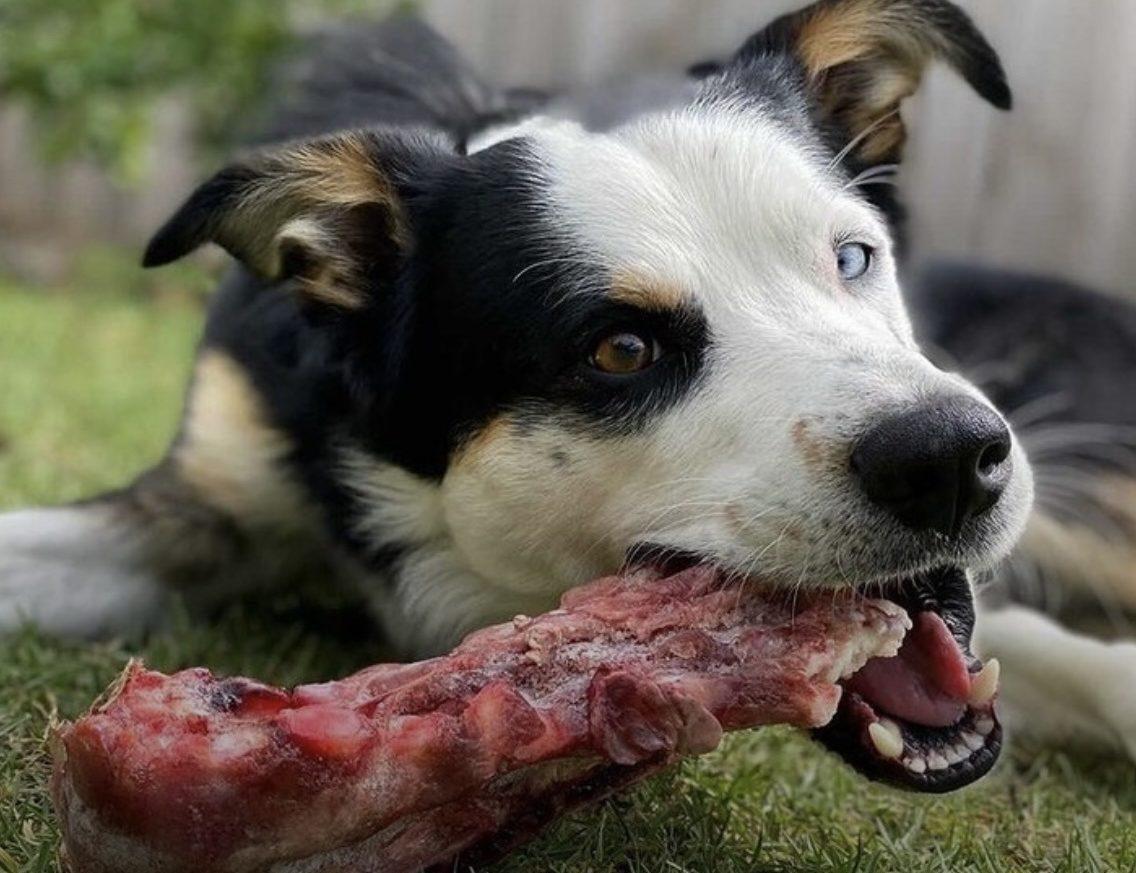
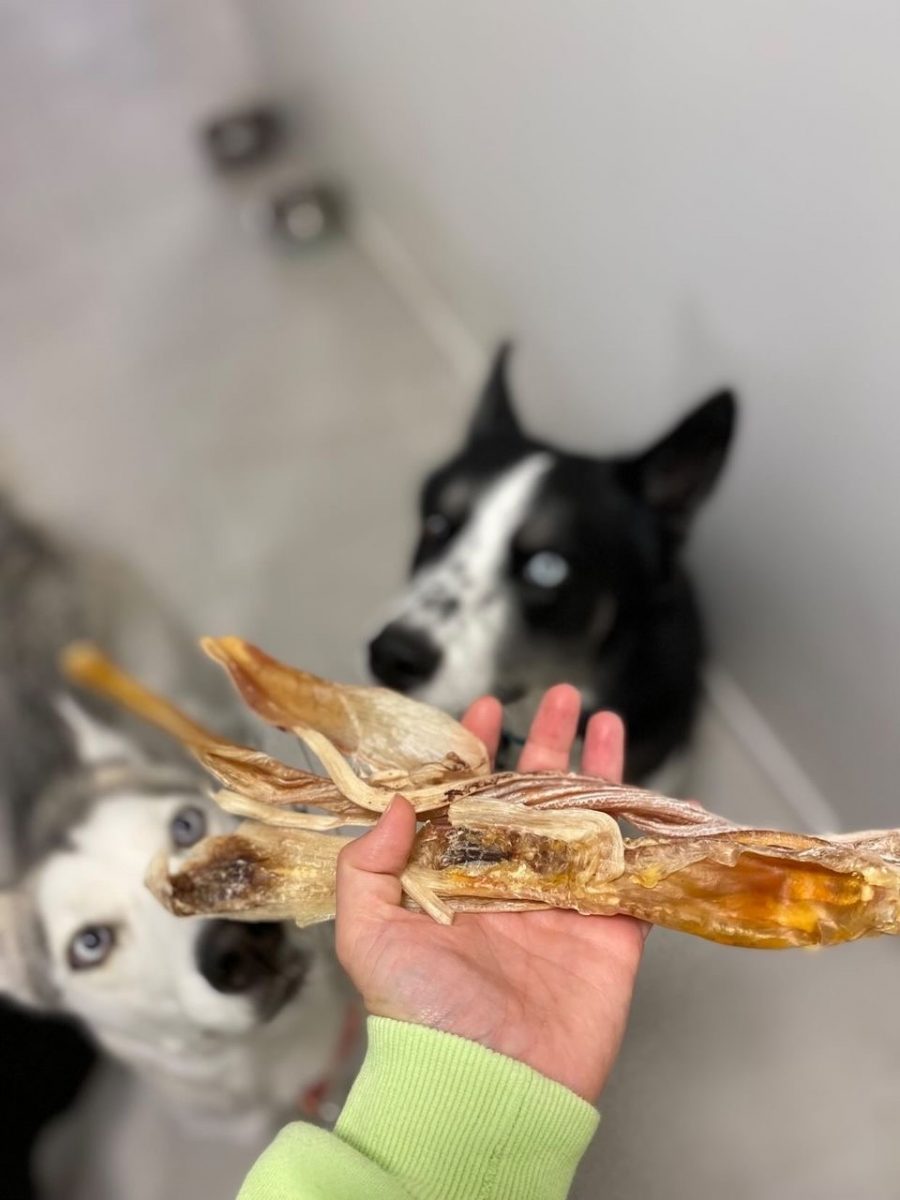
RAW FEEDING IS NATURE'S TOOTHBRUSH
Raw feeding provides easy dental care for owners and their pets - with little (or no) cost over and above your cat or dog's food. Chewing through raw meaty bones helps keep the teeth clean, along with the added benefit of stimulating your pet's mental health. Raw meaty bones are nature's toothbrush!
Dental disease is a huge part of veterinary practice. Many cats and dogs suffer some form of dental disease by the time they are three years old. Pets often require regular dental treatments under anaesthesia, which can be costly, and regular teeth cleaning at home is generally recommended too. Aside from pain, poor oral health can house infection which can spread in the bloodstream to damage organs, such as the kidneys and the heart, and negatively impact gut health.
Optimal dental health relies on a balanced oral microbiome - and physical teeth cleaning (chewing or teeth brushing). When carnivorous jaws shear and tear at appropriate raw meaty bones and chunks of meat, teeth and gums are kept clean and healthy. Excellent gut health also plays a crucial role in oral health, the mouth being part of the digestive tract.
SPECIES APPROPRIATE DENTAL CARE
The excerpt below is from our article on raw feeding science:
Improved appetites, longer periods spent feeding and greater possessiveness of food were noted in captive cheetahs fed a carcass based diet. The study notes that processed foods lack the ‘hassle factor’ and as a result of eating them, animals suffer tooth decay, dental pathologies, muscle atrophy and poor health.
The study references Fagan’s 1980 presentation to the American Association of Zoo Vets where the ‘hassle factor’ is defined. Dr Fagan, Zoo Veterinary Dental Consultant, states: “it is possible to do something immediately and significantly to minimise oral problems in (captive exotic) carnivores. That ‘something’ is to re-evaluate their diet. Animals need more ‘hassle factor’ per mouthful of nutrients. The best kept secret of the last fifty years is that we must eliminate the pre-processed, the overcooked, the smashed, the blended and the pureed foods and feed our animals a more appropriate diet, duplicating the feeding habits of feral conditions.”
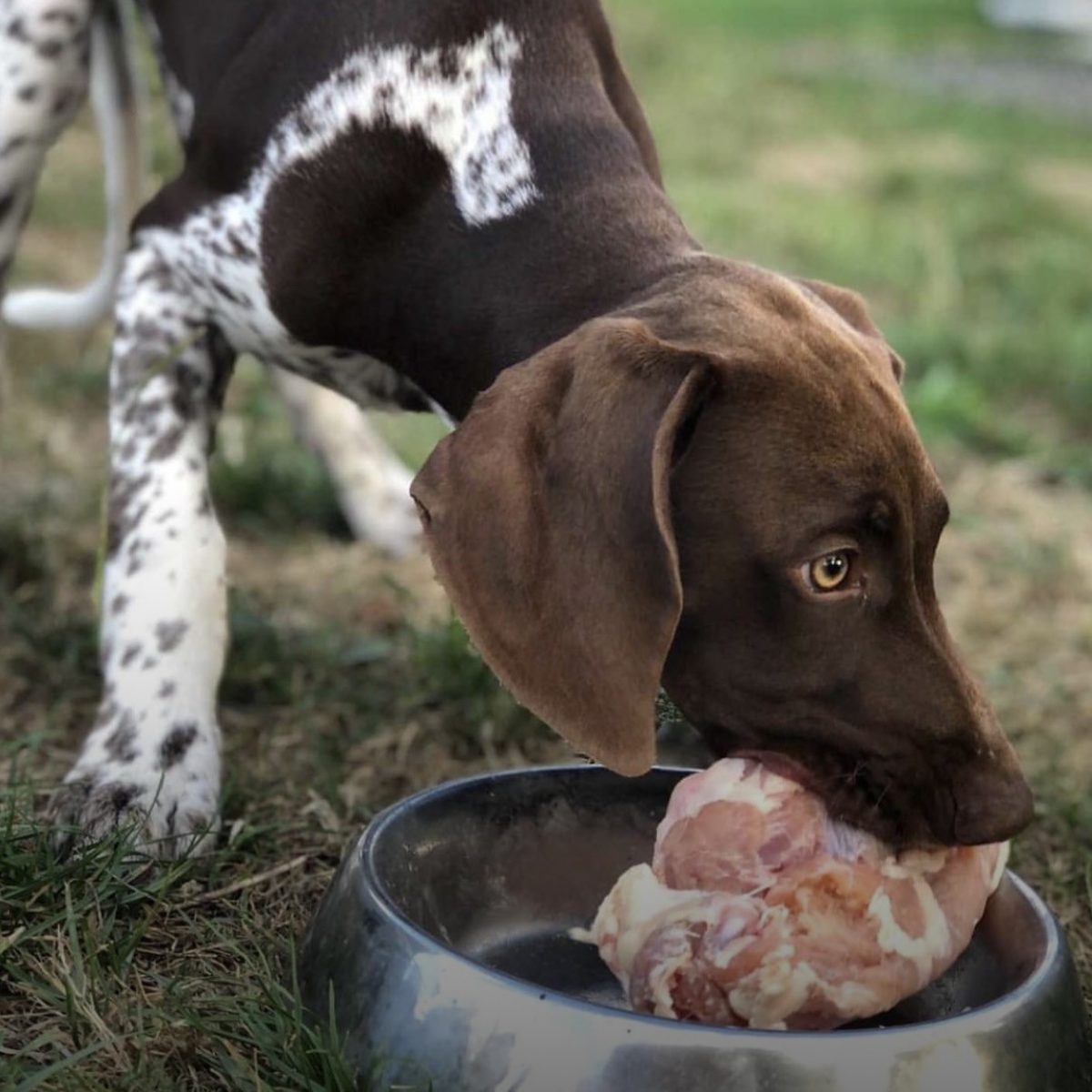
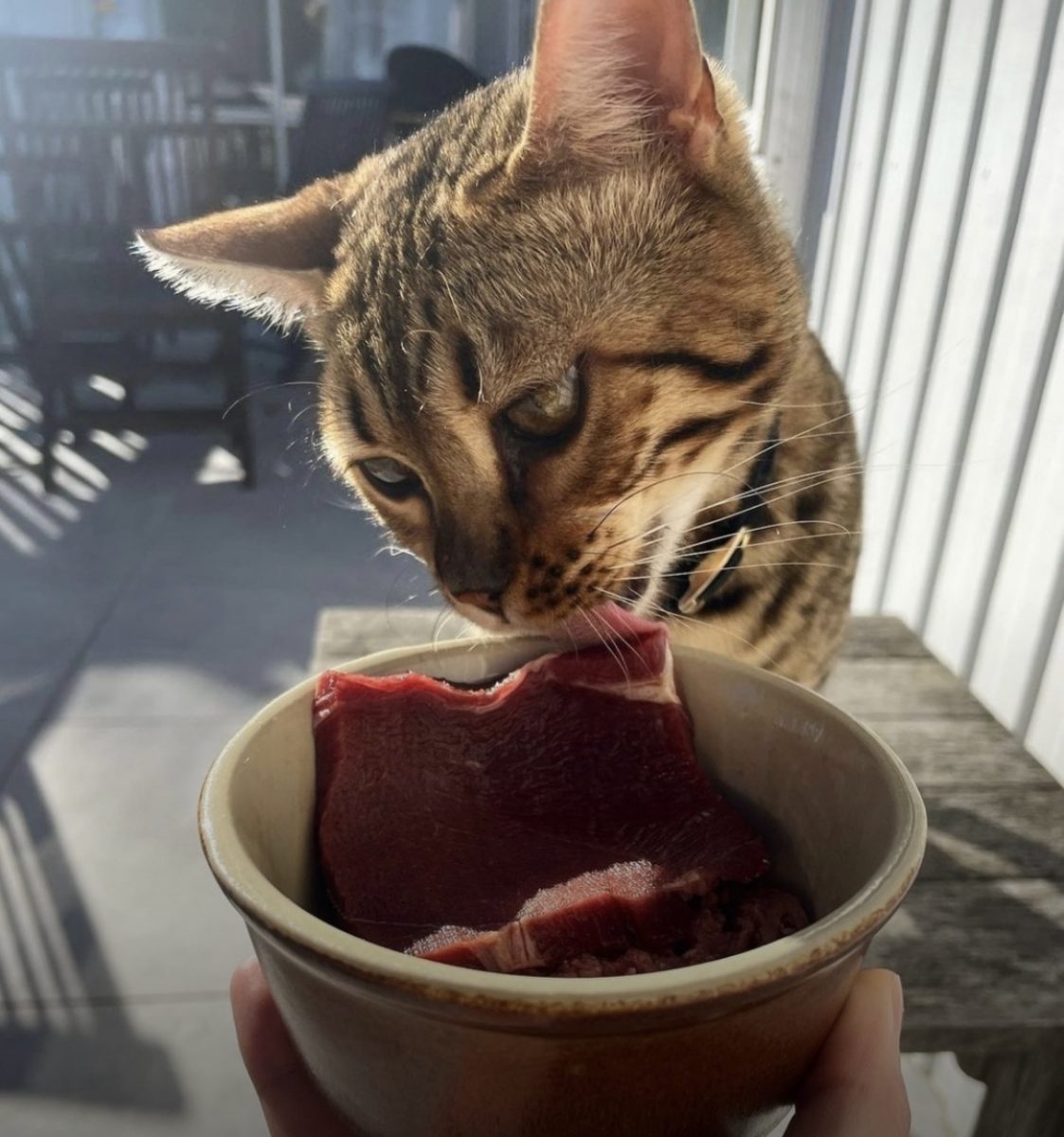
CHOOSING BONES AND CHEWS
Choosing appropriate bones and chews for your pet is based on their personality, breed, health and size to avoid any hazards, such as obstruction or tooth breakage. Bones covered in meat and sinew are the most appropriate surface for chewing.
Please see our Bone Feeding Guide and chat to us about feeding raw meaty bones to your pet. If your pet is deemed unsafe to chew on raw meaty bones then meaty chunks, fillets, and chewy treats can be beneficial and safe. When providing chews, we recommend avoiding all grains, starches, additives and preservatives, just as we do for their main diet. This article provides some explanation.
Occasionally, pets (and people) can break a tooth when chewing. Everyone wants to avoid this situation and we strive to recommend the most appropriate raw meaty bones and/or chewy treats for your pet.
Load bearing leg bones of large animals, such as beef, venison or goat are very hard and therefore a greater risk for breaking teeth. Chewy treats that are more durable (such as hooves and golden tendons) tend to be harder too. The occupation, mental and dental benefits of chewing need to be weighed up with the risk of tooth breakages or obstruction, especially in the young, old, or greedy eaters.
OTHER THINGS TO NOTE
In the absence of chewing, home care is recommended for the physical action to clean the teeth. Teeth brushing can be very helpful in some pets - contact your primary veterinary clinic for advice. Never use human toothpaste. Pet toothpaste is not always necessary. Tooth brushes dipped in bone broth may enhance their experience!
The kelp supplement, Ascophyllum nodosum, has been sufficiently shown to reduce plaque buildup and soften calculus on teeth. It is also a nutritional boost which supports healthy digestion and overall health. See here for more information.
Despite conscientious dental hygiene measures, genetic and anatomical features may still make some pets prone to dental disease, so we encourage regular checks by your primary veterinarian.
Remember - always talk to us before starting your pet on raw meaty bones or chews, so that we can help you choose wisely!
